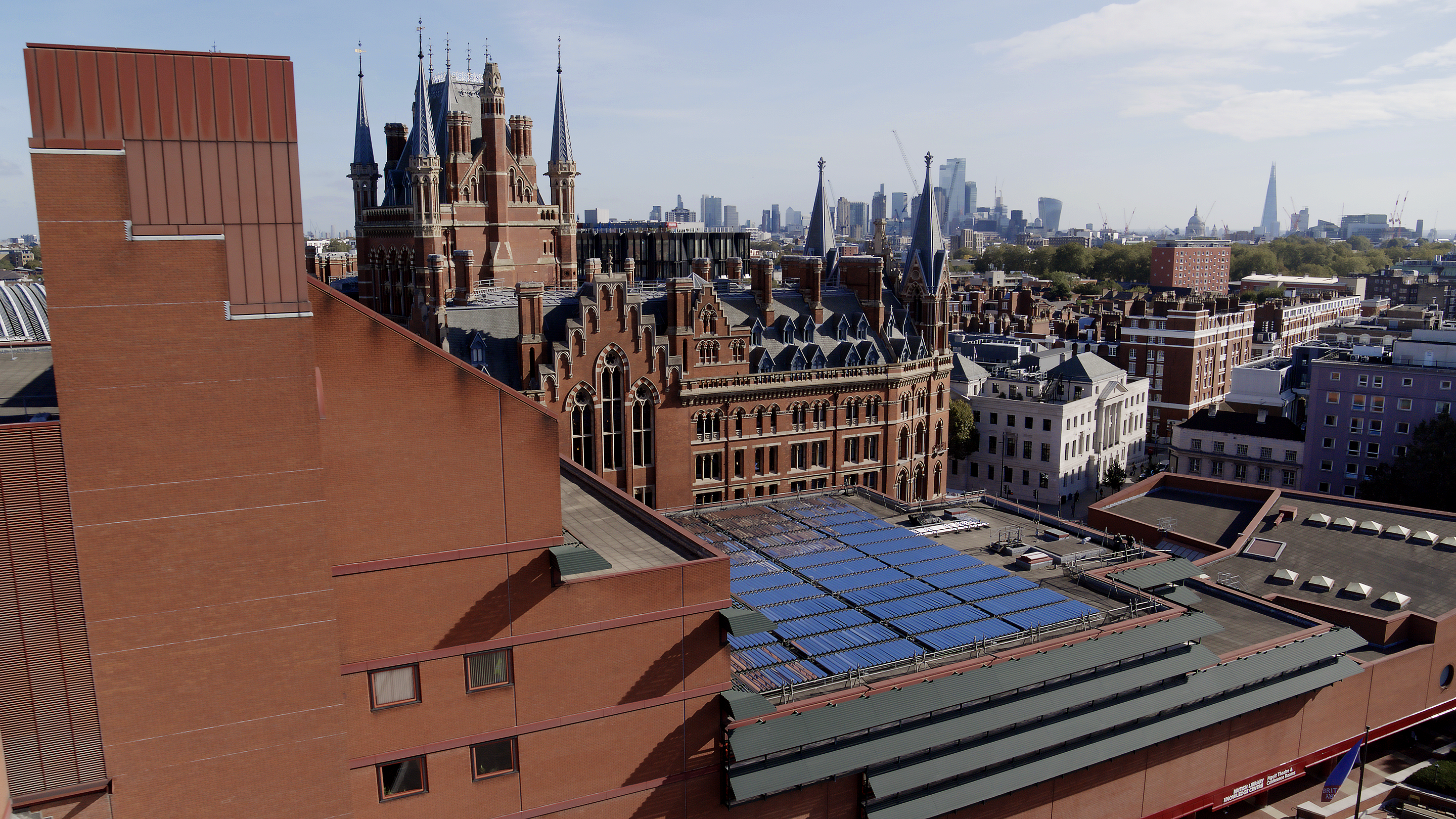
Spanning an area of 715.2m2, the 950 panels are thought to comprise the UK's largest roof-mounted solar heat and power system
Photo: Naked Energy
British Library installs ‘immense’ solar heat system as it aims for net zero
Using technology that converts the sun’s energy into heat and electricity, the panels will supply the British Library with sanitary hot water and space heating, both of which were previously provided by burning natural gas.
The British Library has unveiled a solar heat project to help maintain the temperature and humidity conditions needed to preserve its collection of over 170 million items as part of its new Sustainability and Climate Change Strategy.
Working in collaboration with CBRE Global Workplace Solutions and funded by the Public Sector Decarbonisation Scheme, the project uses solar panels installed on the roof of the Grade I-listed central London building to provide electrical and heat energy.
Spanning an area of 712.5 sqm, the 950 Virtu solar collectors, provided by Naked Energy, are thought to comprise the UK’s largest roof-mounted solar heat and power system, expected to reduce the library’s emissions by more than 55 tonnes of carbon annually.
Camden Council approved planning permission for the scheme, which is not visible from ground level.
Using technology that can convert the sun’s energy into heat and electricity from the same collector, the panels will supply the British Library with sanitary hot water and space heating, which was previously provided by burning natural gas.
The new system is expected to last at least 20 years, displacing 267MWh of gas and 14MWh of electricity annually.
The Public Sector Decarbonisation Scheme provides capital funding to public sector bodies to fund heat decarbonisation and energy efficiency measures. It is run by the Department for Energy Security and Net Zero and delivered by Salix Finance.
Patrick Dixon, director of estates and construction at the British Library, said that the organisation was “delighted” to have received two grants under the scheme.
“[One grant] provided the funds for our supply partners CBRE to work with Naked Energy to design and install this innovative technology on our Grade I Listed building in London,” explained Dixon, adding that the project was part of the library’s commitment to environmental action.
The project has been an “immense undertaking”, according to Christophe Williams, founder and CEO of Naked Energy, who said he hoped it could serve as a catalyst to “inspire others in the public sector to join the energy transition and move away from fossil fuels once and for all”.
Jon Benford, managing director at CBRE GWS, said his organisation was “proud of the role this project will play in both preserving the past and protecting the future”, noting that working towards net zero emissions in a listed building had its own “unique challenges”.
Join the Discussion
You must be logged in to post a comment.